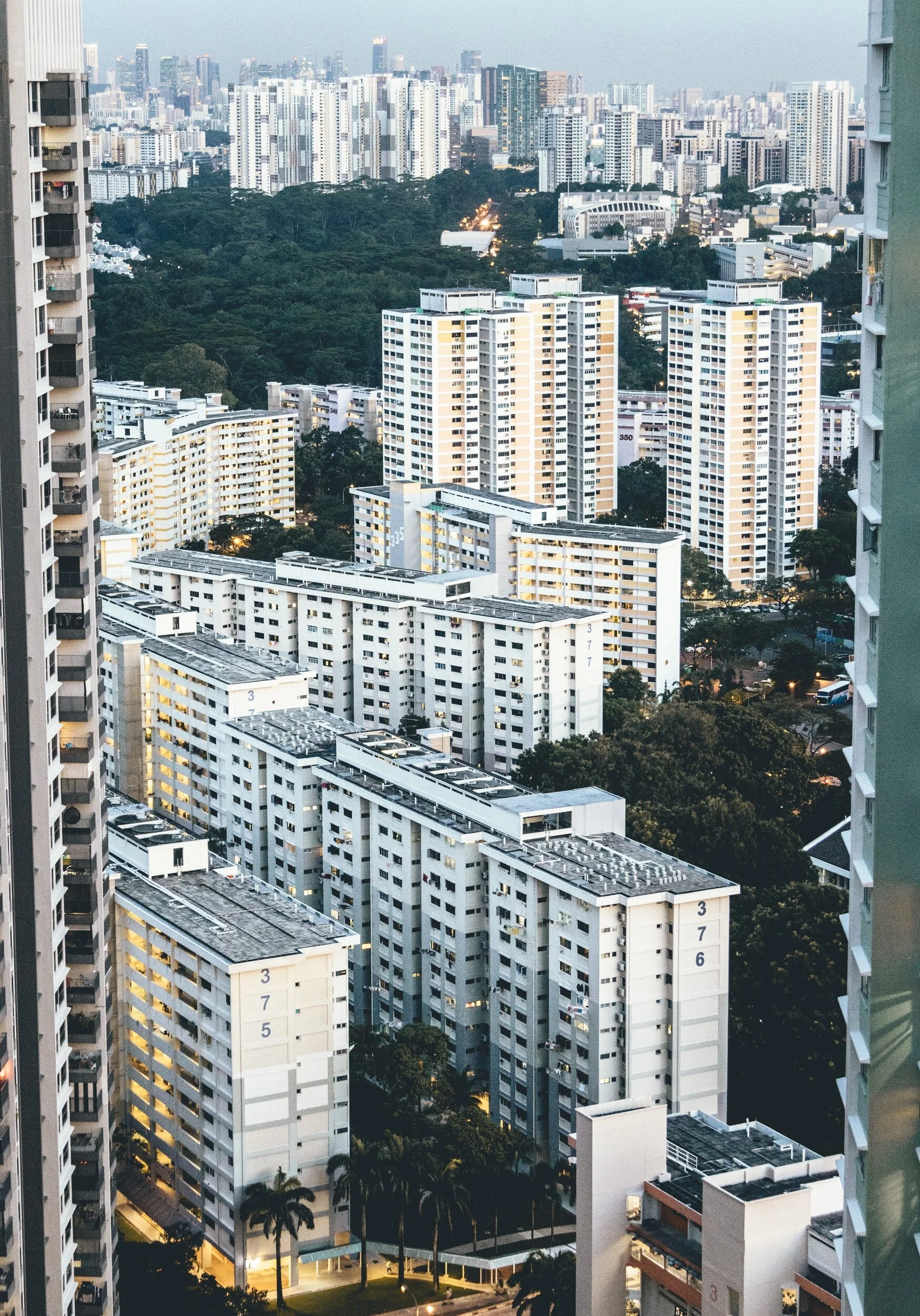8 HDB Renovation Rules for BTO and Resale Flats.
HDB have strict guidelines for renovation
Congratulations, you are about to get your keys to your new BTO flat or you have purchased an HDB resale flat and are now planning your home renovation.
As tempting as it would be to dive straight into planning paint colours and choosing appliances and furniture for your new apartment, first you need to be familiar with and adhere to the rules and regulations set out by HDB.
Remember, failing to follow any of the rules set out by HDB is not an option. The rules and regulations are set out to ensure the safety of your home and your block. If in doubt, always ask prior to commencement of work, it always pays to check twice and do it once.
Submit all plans to HDB for approval before hacking or erecting walls.
You may have a vision of an open plan home, with plenty of light streaming through and the easiest way to do this is to hack or knock down walls. A good example of this is to remove a wall between the kitchen and living room to create an open plan kitchen/ living space with an island in the middle. Be warned, any hacking of walls requires approval from HDB.
Which walls can be hacked?
Some walls, columns, beams and slabs are load-bearing walls and cannot be removed, moved or altered in any way. But why are load-bearing walls important? Simply put, load-bearing walls are structural elements in the home that help to transfer weight from the roof, through the floors, and down to the foundation.
On your floor plan, load-bearing walls are usually shaded in solid black or grey. Other walls, which are normally shown with double lines in your floor plan, though not load-bearing, hide important wiring and piping and cannot be tampered with. Therefore it is essential that you get permission from HDB before you hack or take down any walls within your home.
What about building new walls?
Similarly, you also need permission from HDB to erect any walls. Whilst splitting a room in two may seem to solve challenges such as creating enough private sleeping areas for each family member, there are rules and regulations such as adequate ventilation, access to fire escapes etc which HDB will take into account before granting any permits required.
Remember, get any permits or permissions from HDB in writing. Your contractor will need to apply for these, but as the homeowner, you should ask for and keep a copy of these from your contractor.
2. Exposed pipes cannot be permanently concealed.
Yes, we understand that some homeowners want to cover up exposed pipes in their bathrooms or kitchens as they may detract from the overall appearance and style you are going for. This is, however, simply not possible as pipes cannot be permanently concealed. In the case of any clogs or issues with the piping, HDB must be able to access the pipes to carry out their investigations or repair works.
That doesn't mean you can't be creative, work with your Interior Designer or Contractor to explore options that may work within your space.
3. Renovation Timings.
Renovation timings must be strictly adhered to
Typically, homeowners must occupy the flat for at least 5 years before applying for the Request for Confirmation of Eligibility to Sell Your HDB Flat and putting it up on the market. Why is this important? Well, let's face it, you are going to be living beside your neighbours for at least the next few years. Start the relationship off right by bearing in mind that renovation works are noisy and disruptive, not just for you, but for those living within your block.
Arguably, sticking to the timings set out by HDB isn't only a renovation requirement but also your social responsibility as a homeowner to minimise disruption for your neighbours.
So what are the specific rules?
General renovation work can be done from 9 am to 6 pm on weekdays and Saturdays
No renovation works at all, no matter how quiet they are can be carried out on Sundays and Public holidays
Noisy works like demolishing of walls, cutting of tiles or excessive drilling can only be done from 9 am to 5 pm on weekdays
Renovation contractors are allowed to use not more than 2 HDB Approved Hand-held Power Tools or their equivalent at any one time to demolish walls and/or remove of wall/ floor finishes.
Such work must be completed within 3 consecutive days.
No noisy renovation works can be carried out on weekends, public holidays and eve of major public holidays
Other important rules:
Once you get your permit, you’ve got 3 months to complete your renovation in the case of a new BTO flat, or 1 month if it’s a resale HDB flat.
You have to inform at least 2 neighbours of your renovation, at least 3 days in advance.
With so many of your neighbours working from home, be considerate and work with your Interior Designers and Contractors to keep disruption to a minimum. A little bit of courtesy goes a long way.
4. Front door needs to be fire-rated.
Ensure you install a fire rated front door to your HDB
Whilst you can replace the internal doors within your HDB with few restrictions, there are separate rules when it comes to replacing your front door. All front doors must be suitably fire rated. The replacement door and/ or frame must be half-hour fire-rated and the frame must have a self-closing device. Most HDB front doors are designed to contain smoke and fire within the unit so they don’t spread to staircases or lift lobbies. Given the risk of fire, making sure that your new front door meets HDB’s guidelines is essential to protect you, your family and your neighbours in the event of a fire.
5. Electrical works.
Electric jobs include the electrical wiring of lights, air-con units, switches and more in a house interior decoration in Singapore. If you're looking for a brand-new electricity supply, the HDB standards regarding electrical jobs tell you the process of what you require to do. They also tell you what you need to do in order to get an upgrade on your already existing electrical power supply. The standards provide a detailed situation of all the important things you should provide for either of these situations.
6. False Ceiling.
You don’t need an HDB permit to install a false ceiling, but you’ll need a minimum floor-to-ceiling height of 2.4 metres. The standard HDB floor-to-ceiling height is 2.6 metres, which gives you a 20-centimetre leeway to make it fancy schmancy. As counter-intuitive as it may sound, installing a false ceiling can actually add perceived height to your home – the gap between the original and the lowered ceiling creates a sense of depth and space.
Also, false ceilings are strictly not allowed in bathrooms; in the kitchen, they should not cover the gas pipes.
HDB Flooring needs to adhere to strict guidelines
7. Flooring.
There are 2 means to revamp your floor: overlay laminate tiles on top of your existing tiles, or hack out the existing tiles completely and replace them with new ones.
Only the latter needs an HDB license. Due to the fact that overlaying floor covering is much more budget-friendly than redesigning your entire apartment, a lot of homeowners prefer overlays instead.
Keep in mind, no matter which option you choose, the total thickness of your flooring surface can not surpass 50mm.
8. Changing windows and grilles.
Firstly, a renovation permit from HDB is required for all windows replacement work. A BCA Approved Window Contractor (AWC) who is listed in HDB’s Directory of Renovation Contractors needs to apply for a renovation permit from HDB before carrying out the window replacement works. If you want to replace Grilles, similar restrictions apply. If you are not sure if the window works you want to carry out will be in violation of any HDB rules, it is important to check with your BCA AWC or the HDB website at the planning stage.




